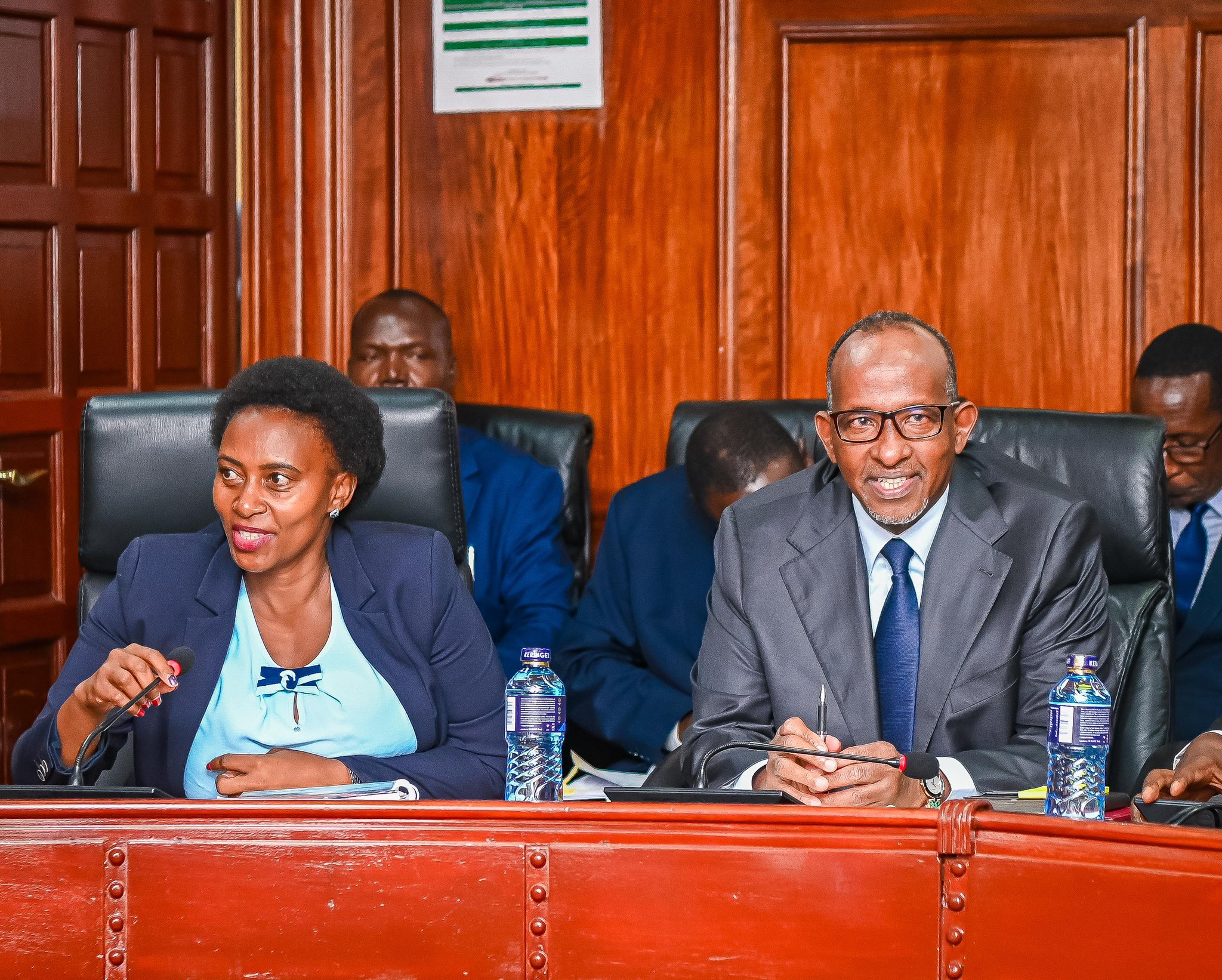
Health Ministry seeks additional Ksh.22.7B to bridge budget gaps
The Ministry of Health has sounded alarm over a staggering Ksh 22.7 billion funding gap that threatens to derail critical healthcare initiatives under the Universal Health Coverage (UHC) programme in the Financial Year 2025/26.
Appearing before the National Assembly’s Departmental Committee on Health, Cabinet Secretary for Health Adan Duale and Principal Secretary for Public Health and Professional Standards Mary Muthoni made a strong case for increased allocations to bolster preventive and promotive healthcare and ensure operationalization of newly enacted health reforms.
The State Department for Public Health and Professional Standards has been allocated Ksh 31.34 billion in the FY2025/26 draft budget estimates representing 22.91% of the total health sector allocation of Ksh 136.79 billion.
However, ministry officials warned that this figure falls far short of the Ksh 70 billion the department submitted during sectorial working group consultations, leaving a Ksh 38.7 billion shortfall. Of this, Ksh 22.7 billion has been flagged as critical.
Among the priority areas at risk are the recruitment and stipend support for over 5,400 medical interns, the remuneration of 107,831 community health promoters (CHPs), and operational costs for newly established agencies under the Ministry.
The Ministry is requesting an additional Ksh 3.65 billion to meet full stipend obligations for medical interns, on top of the Ksh 4.02 billion already allocated.
A further Ksh 150 million is needed for administrative and monitoring support for the CHPs an initiative meant to entrench preventive healthcare at the grassroots.
In addition, the Ministry is seeking Ksh 250 million for the operationalization of the State Department for Public Health and Professional Standards following its creation through Executive Order No. 1 of 2023.
“The implementation of Kenya’s health transformation is hinged on properly resourced institutions. Without adequate funding, we risk having good policies on paper that do not benefit citizens,” said CS Duale.
Several Presidential directives are also hanging in the balance due to lack of funding. These include the establishment of Primary Health Care Networks in all 315 sub-counties, and recruitment of additional teaching staff at the Kenya Medical Training College (KMTC). To this end, the Ministry is requesting an additional Ksh 900 million.
Also jeopardized is the continuation of student loans under the Higher Education Loans Board (HELB) sponsorship program at KMTC, with Ksh 680 million required to support needy students. Since its inception in FY2022/23, the program has benefited 22,342 students.
The Pharmacy and Poisons Board (PPB), tasked with regulating pharmaceuticals and achieving WHO’s Maturity Level 3 certification, is facing a Ksh 206 million shortfall.
This funding is vital to upgrade regulatory functions and transition to the Kenya Health Products and Technologies Regulatory Authority (KHPTA), a crucial step in aligning Kenya with global pharmaceutical standards.
Similarly, the Kenya Institute of Primate Research (KIPRE) requires Ksh 218.9 million for personnel emoluments. Without this, officials warned, ongoing biomedical research and the newly proposed Snake Anti-Venom Processing Plant risk stalling.
In a worrying trend, the Ministry also flagged a massive Ksh 1.09 billion cut to recurrent funding for Semi-Autonomous Government Agencies (SAGAs). Institutions such as the Kenya Medical Practitioners and Dentists Council, Kenya Nuclear Regulatory Authority, and KMTC are among those affected.
The Treasury’s expenditure rationalization policy aimed at capping the fiscal deficit at 4.5% of GDP has led to a 20 percent cut in grants to SAGAs.
But the Ministry insists these cuts are “way above” what can be sustained, especially as most agencies require consistent funding to meet personnel and operational needs.
“Without timely intervention by this Committee, these agencies may be unable to pay staff, let alone discharge their mandates effectively,” warned PS Muthoni.
While the government has shifted policy emphasis from curative to preventive health, the current budget allocates limited resources toward this shift.
For instance, funding for communicable disease control, public health services, and radiation safety were all cut in the final estimates compared to the 2025 Budget Policy Statement.
The Ministry decried the overreliance on curative spending, despite public participation forums strongly advocating for greater investment in preventive care.
Officials cited global data that shows every USD 1 invested in preventive health saves USD 9 in curative costs.
To this end, the Ministry is prioritizing deployment of multidisciplinary primary care teams, household-level services by CHPs, and community-based surveillance systems.
In alignment with President William Ruto’s Bottom-Up Economic Transformation Agenda (BETA), the Ministry has laid out an ambitious set of reforms, including: Health Commodities Security through local manufacturing and improved KEMSA efficiency.
Expansion of digital health systems across facilities via the Integrated Health Management Information System as well as full rollout of the Social Health Insurance Fund and Primary Health Fund under the new laws enacted in 2023.
Establishment of a state-of-the-art Snake Anti-Venom Processing Plant at KIPRE, with a projected cost of Ksh 1.8 billion over three years.
However, officials warned that without increased funding ceilings, most of these projects may remain “unrealized aspirations.”
The Ministry has now turned to Parliament for support, urging the Committee on Health to push for upward revision of the budget ceiling for the sector.
“The success of the UHC and BETA health agenda depends on this House. We cannot operationalize health reforms if we continue to underfund the sector,” said CS Duale.
He also underscored the constitutional imperative to provide Kenyans with the highest attainable standard of health a right enshrined in Article 43 of the Constitution.
Also read https://www.kbc.co.ke/clinton-health-access-initiative-steps-in-to-bridge-hiv-tb-funding-gaps-in-kenya/
